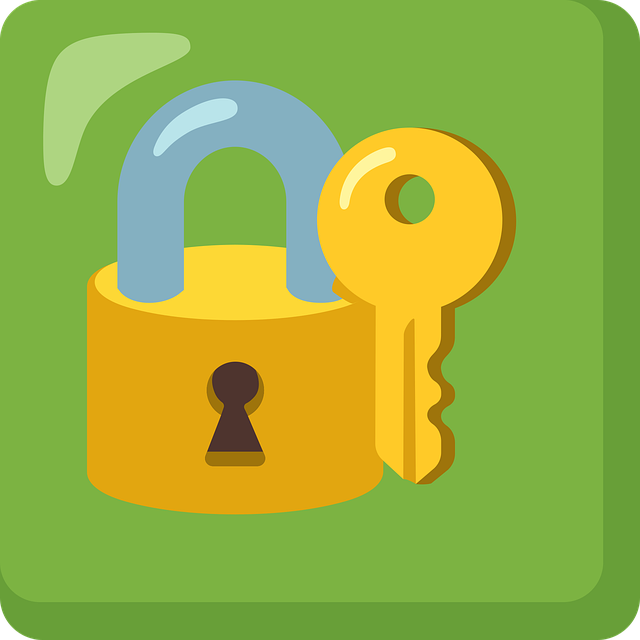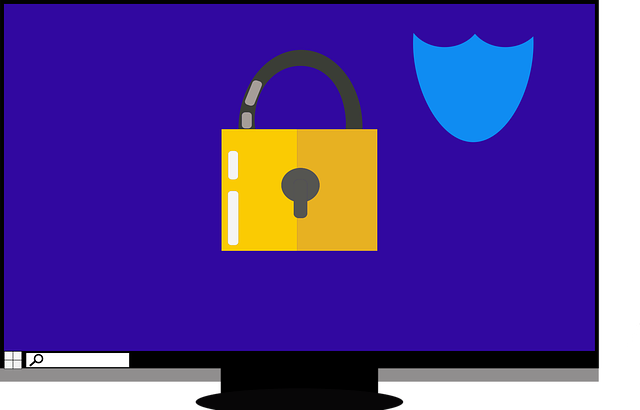Choosing the Right Crypto Wallet: A Comprehensive Guide
Author: Jameson Richman Expert
Published On: 2025-05-16
Prepared by Jameson Richman and our team of experts with over a decade of experience in cryptocurrency and digital asset analysis. Learn more about us.
Selecting the right crypto wallet is crucial for anyone venturing into the world of cryptocurrencies. A reliable wallet not only secures your digital assets but also simplifies the process of managing and transacting your coins. Throughout my journey in the crypto space, I have faced numerous challenges and learned valuable lessons about the importance of choosing the right wallet. From trying out different wallets to experiencing losses due to inadequate security measures, my experiences have shaped my understanding of what to look for when choosing a crypto wallet.
At first, I was overwhelmed by the plethora of options available. I tried several wallets, including hardware wallets, software wallets, and online wallets. Each had its pros and cons, and I quickly realized that not all wallets are created equal. The most important factors to consider when choosing a wallet are security, accessibility, and user-friendliness. In this article, I will share my experiences, highlight key aspects to consider, and guide you in making an informed decision.

Understanding Different Types of Crypto Wallets
There are three main types of crypto wallets: hardware wallets, software wallets, and paper wallets. Each type serves different needs and offers varying levels of security. Let's explore each of these options based on my personal experiences.
1. Hardware Wallets
Hardware wallets are physical devices that store your cryptocurrencies offline, providing a high level of security against online threats. I initially hesitated to invest in a hardware wallet due to the upfront cost, but I quickly realized the value it brings in terms of security. During my early days, I lost access to a significant amount of crypto because I stored it on an insecure platform. This experience prompted me to invest in a hardware wallet, which has since given me peace of mind. Popular hardware wallets include the Trezor and Ledger, both of which offer robust security features such as PIN protection, recovery seed backups, and encrypted storage. They are also designed to be user-friendly, making them suitable for both beginners and seasoned investors.
2. Software Wallets
Software wallets can be further categorized into desktop, mobile, and web wallets. I started using mobile wallets for their convenience, but I learned the hard way that they can be vulnerable to hacks if not secured properly. After my mobile wallet was compromised, I decided to switch to a desktop wallet that offered better security features, such as the ability to store my private keys locally rather than in the cloud. Software wallets are ideal for frequent transactions and can be very user-friendly, but it is essential to choose a reputable wallet provider and enable two-factor authentication for added security. Some popular software wallets include Exodus, Atomic Wallet, and Electrum, each offering unique features tailored to different user needs.
3. Paper Wallets
Paper wallets are a less common option but can be a secure method of storing your cryptocurrencies offline. I created a paper wallet as a backup for my hardware wallet. The process was a bit technical, and I had to ensure that I generated the wallet in a secure environment to avoid exposure to potential malware. While paper wallets are not as convenient for transactions, they provide a high level of security if done correctly. It’s essential to print your paper wallet using a secure printer and store it in a safe place, as losing the paper wallet means losing access to your assets forever.
Security Features to Look For
Security should be your top priority when choosing a crypto wallet. Based on my experiences, I found several features that are essential for safeguarding your assets:
- Two-Factor Authentication (2FA): This adds an extra layer of security by requiring a second form of verification when logging in. It’s a critical step to protect your account from unauthorized access.
- Backup Options: Ensure that the wallet provides a secure way to back up your private keys and recovery phrases. This feature is crucial for recovery in case of device loss or failure.
- Open Source Software: Wallets that are open source allow for community scrutiny, which can lead to quicker identification of vulnerabilities. Transparency in code is a good indicator of a wallet’s reliability.
- Regular Updates: Choose wallets that receive regular updates to patch any security flaws. Staying current with the latest security patches can protect you against new threats.
User Experience and Accessibility
User experience is another critical factor when selecting a wallet. I remember using a wallet that was incredibly difficult to navigate, which led to several frustrating moments when trying to send or receive coins. A wallet should have a user-friendly interface and provide clear instructions for beginners. Additionally, consider the accessibility of the wallet. Some wallets are available on multiple platforms (desktop, mobile, web), while others are limited to a single type. The more accessible your wallet is, the easier it will be for you to manage your assets. Look for wallets that offer features like transaction history, price tracking, and support for multiple cryptocurrencies to enhance your overall experience.

Integrating with Exchanges
When I first started trading cryptocurrencies, I relied heavily on exchanges to store my assets. However, I soon realized that keeping my funds on exchanges posed significant risks. Some exchanges have faced security breaches, leading to the loss of users' funds. After experiencing this firsthand, I began to transfer my assets to a more secure wallet. To ensure a seamless experience, it is essential to choose a wallet that integrates well with reputable exchanges.
For example, you can register on Binance, a well-known exchange that offers various trading options and security features. Similarly, MEXC provides an intuitive platform for trading while ensuring that your assets are secure. You can also check out Bitget for a different trading experience. Lastly, Bybit is another option for those who want to explore derivatives trading. Choosing wallets that facilitate easy transfer to and from these exchanges can save you time and reduce transaction costs.
Best Practices for Keeping Your Wallet Secure
After going through various experiences, I have compiled a list of best practices that can help keep your crypto wallet secure:
- Use Strong Passwords: Always use a combination of letters, numbers, and symbols to create a strong password for your wallet. Avoid using easily guessable information.
- Enable 2FA: As mentioned earlier, enabling two-factor authentication can significantly enhance your wallet's security. This should be a standard practice for all your online accounts.
- Keep Your Software Updated: Regularly update your wallet software to ensure you have the latest security patches. Outdated software can expose you to vulnerabilities.
- Be Cautious of Phishing Attempts: Always verify the URLs of websites and emails related to your wallet to avoid phishing scams. Never click on links from untrusted sources.
- Do Not Share Your Private Keys: Your private keys are the gateway to your assets; never share them with anyone. Consider using a password manager to keep your keys secure.
- Use a Dedicated Device: If possible, use a dedicated device for managing your crypto wallets. This reduces the risk of malware and other security threats from other applications.
- Monitor Your Transactions: Regularly check your transaction history and account balances. This can help you quickly spot any unauthorized transactions.
Conclusion
Choosing the right crypto wallet is not a decision to be taken lightly. My experiences have taught me the importance of security, accessibility, and user experience. By understanding the different types of wallets and the key features to look for, you can make an informed decision that suits your needs. Always remember to prioritize security and stay informed about the latest trends and best practices in the crypto space. Whether you are a beginner or an experienced trader, selecting the right wallet is essential to protect your investments and ensure a smooth trading experience.
For more in-depth insights on crypto wallets, you can read this guide or check out why crypto trading is the future. If you're interested in automated trading, this comprehensive guide on crypto trading bots can provide valuable information. Lastly, explore the top crypto wallets to try in 2025 and make the most out of your crypto investments.

Future Trends in Crypto Wallets
As the cryptocurrency landscape evolves, so too do the wallets that support it. Innovations such as multi-signature wallets, which require multiple parties to sign off on a transaction, are becoming increasingly popular, especially for businesses and partnerships. Additionally, advancements in biometric security, such as fingerprint and facial recognition, are being integrated into crypto wallets, providing an extra layer of protection against unauthorized access.
Moreover, with the rise of decentralized finance (DeFi), wallets that support smart contracts and decentralized applications (dApps) are gaining traction. These wallets enable users to engage directly with the blockchain, allowing for activities such as yield farming, lending, and staking without the need for a centralized intermediary. This trend is likely to grow as users seek more control over their assets and the ability to participate in innovative financial products.
As cryptocurrencies continue to gain mainstream adoption, user education will be paramount. Wallets that provide integrated educational resources and tutorials can help users navigate the complexities of the crypto ecosystem, making it easier for newcomers to engage safely and effectively. Furthermore, as regulatory landscapes evolve, wallets that incorporate compliance features may become essential for users looking to stay within legal boundaries while managing their digital assets.
Final Thoughts
In conclusion, the choice of a crypto wallet is foundational to your experience in the cryptocurrency space. With a wide array of options available, understanding the distinct features and security measures is essential. Whether you prioritize security, ease of use, or the ability to interact with the DeFi ecosystem, there is a wallet tailored to meet your needs. As you embark on your crypto journey, remain vigilant about security practices and stay informed about the rapidly evolving landscape of digital currencies. Remember that the safety of your investments relies heavily on the wallet you choose, so take the time to find one that best aligns with your requirements and preferences.